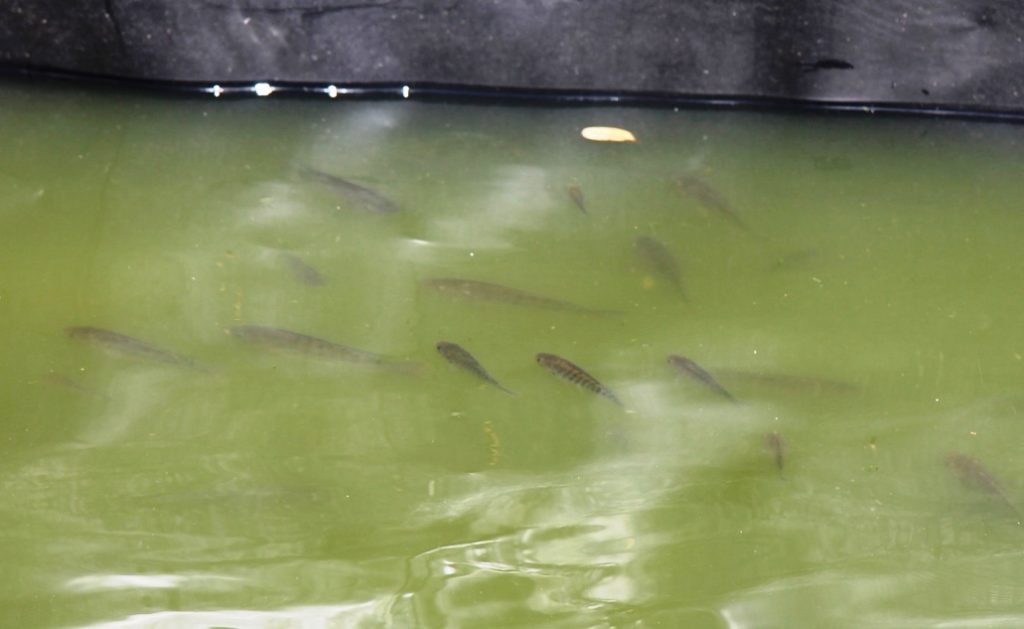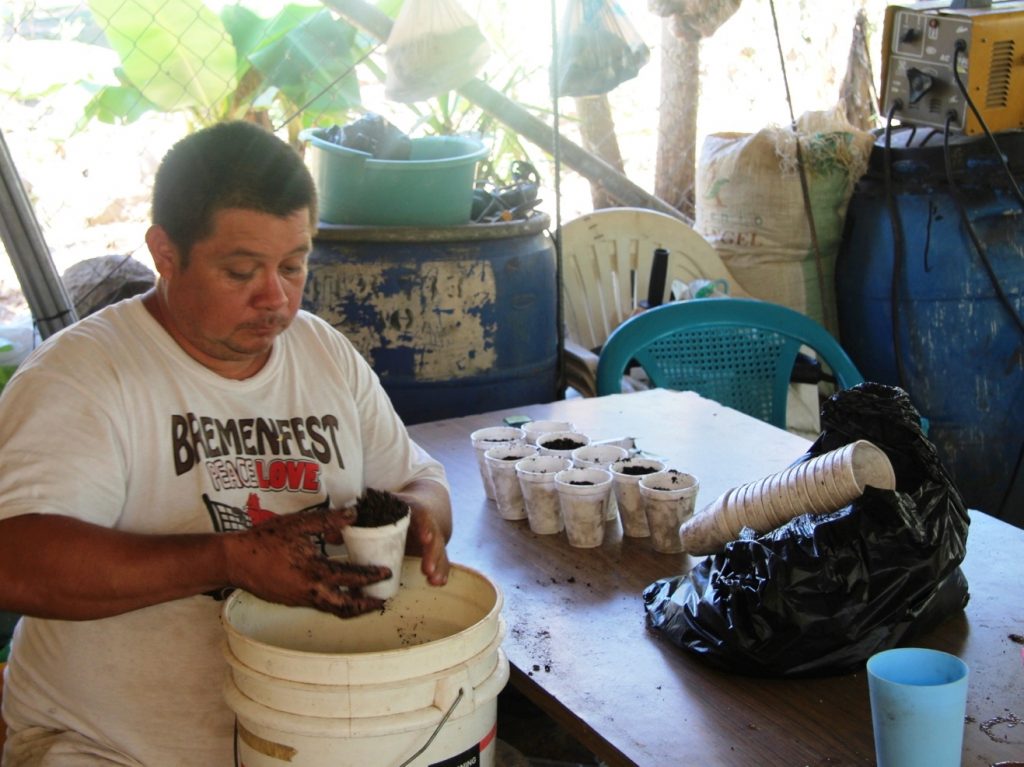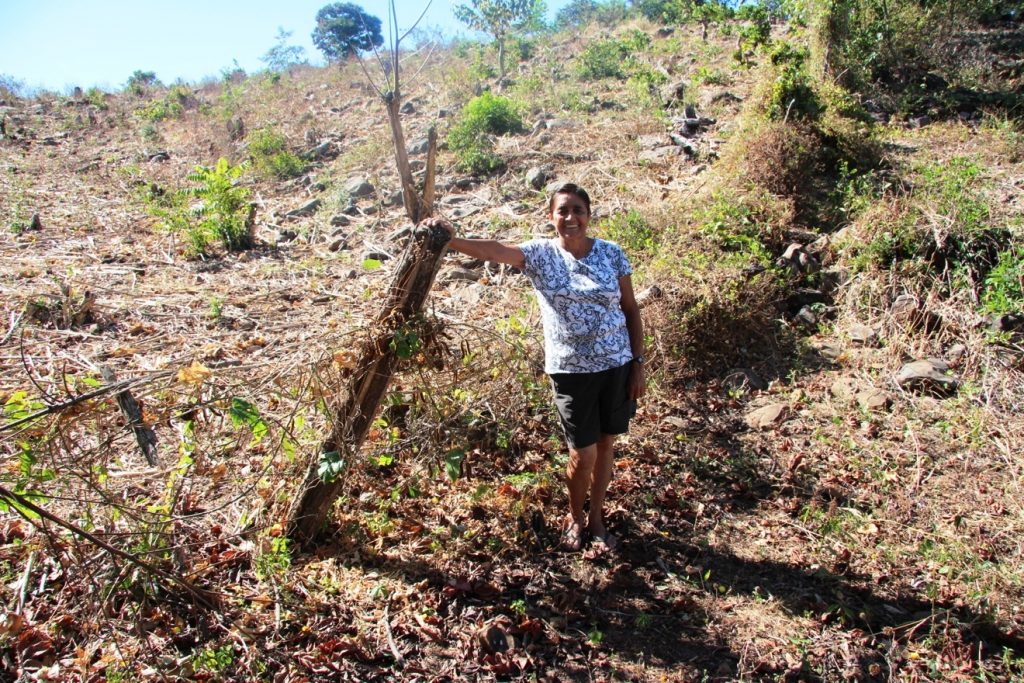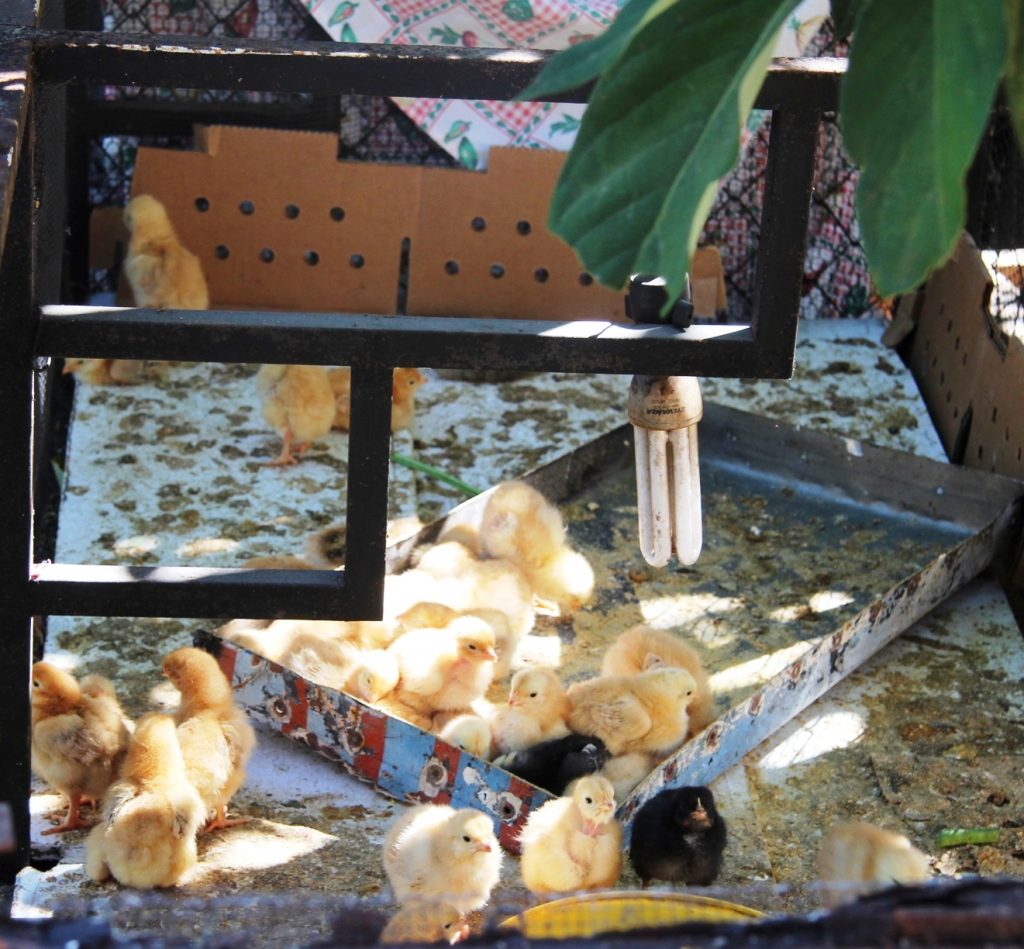FARMING HOPE
Who in their wildest fancies would have imagined finding a makeshift above –the- ground pool filled with a school of small tilapia swimming around on the top of a Salvadoran mountain?

Who would have pictured finding neat rows of peppers, tomatoes, herbs, papaya, beans, and corn planted in neat rows in a garden up there?
Who would have conceived of finding on a mountain top workers who typically would be living on the streets of San Salvador – some welding, others planting seeds or harvesting the crops?
I stand under a lemon tree in awe of my surroundings. It was a harrowing ride up the long “road” as I wondered if our mini-van would bottom out on this crudely fashioned road built from local field stones. My kidneys are still trying to find their way back into my body. It was only with the help of one of “Trini’s boys” riding along with us to show us the vital turnoffs from the main roads that we even found this place. (The “Map Me” app on the iPad showing only a dot in the middle of a field was no help beyond the main road.)
Farming Hope is an ongoing project –a vision in the making. Its goal is to provide food for a homeless shelter (Casa Esperanza) in downtown San Salvador by employing the homeless clientele in the planting and cultivating of its crops.

Its location is along a mountainside outside Suchitoto where Maria (“Trini”) Trinidad inherited the property from her family. She is donating her inheritance for this noble project, one for which she has a deep and abiding passion.
Habitat for Humanity built the original $6,000 structure here at Farming Hope, but more extensions continue to be added to it. “How did they get trucks up the road to build it?” we ask. Trini responds that they used her small truck bringing supplies in small amounts at a time. This is a narrow road with only one place to turn around – at the final destination. (I’m glad we don’t meet a vehicle mid-way lest one of us needs to back up for a VERY long distance.)
Many goals and dreams integrate at this property. Homeless people learn skills empowering them, giving them confidence and self-esteem, and developing strong work ethics. Beyond providing basic food on the table, other products from these crops include salsa, and a line of soap and shampoo, and hibiscus tea.
The hope is that this organic farm will become self-sustaining. Jamie Stark worked as a linguistic and cultural translator for delegations visiting the country when he lived in El Salvador. He was a vital ally and supporter of this project.
In addition to what is currently happening on this piece of property, plans are in place to purchase the neighboring mantzana at the top of the ridge to increase production possibilities. Planting cannot be easy on this property. It is filled with rocks. Yet knowing the determination of the organizers, they will fulfill whatever dreams they have.
Additional plans are to build other houses and to create a reservoir for hold water from the stream running below the property.

Visions are plentiful. Hopes are strong. Optimism reigns supreme.



